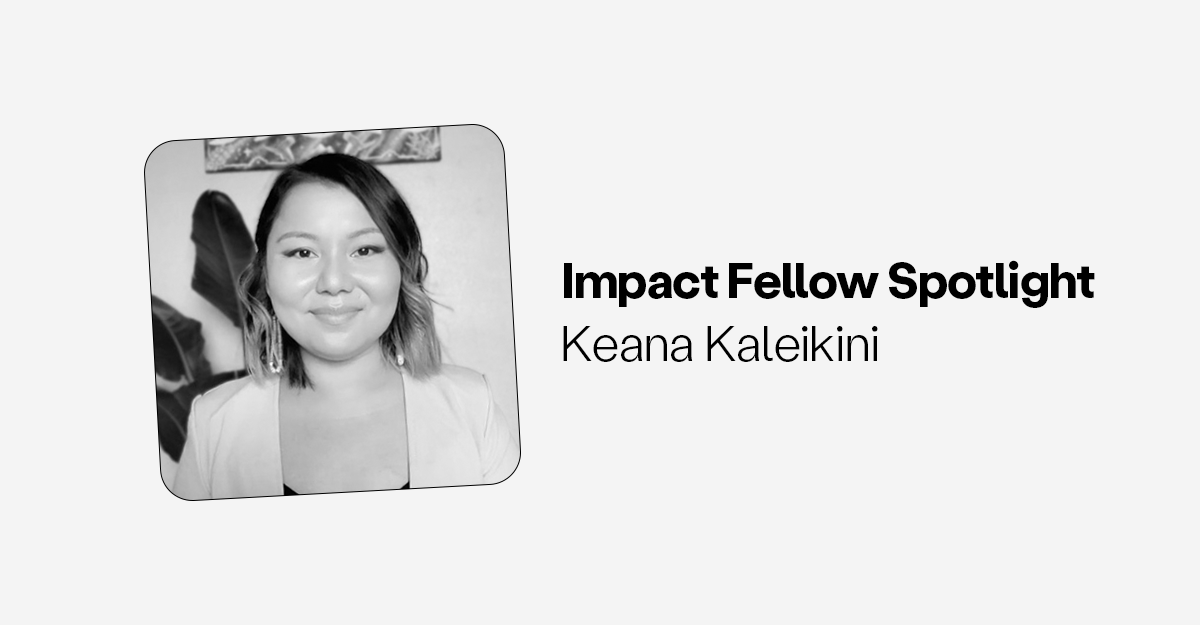
Grounded in Evidence and Driven By Care: Keana Kaleikini Reflects on Her Time as an Impact Fellow
As we enter into “Disaster Season,” shorthand for natural disasters, our teams at FAS are continuing to research prevention methods and advocate for relief efforts for a resilient global community. As FAS thinks about innovative ways to mitigate health and climate issues, we also reflect on the work our current and former Impact Fellows have done to move us closer to a safer world.
One of the over 100 Impact Fellows that has spent time working in the federal government, particularly at the United States Department of Health and Human Services, is Keana Kaleikini. From February 2024 until May 2025, as an Impact Fellow in the Office of the Assistant Secretary for Health (OASH), she provided scientific and policy research across four divisions: the Office of Environmental Justice, the Office of Climate Change and Health Equity, the Office of Science and Medicine, and the Office of the Surgeon General. In this role, she became a trusted advisor on complex scientific and policy topics spanning environmental exposures, chronic disease, and public health preparedness. Her contributions supported international treaty negotiations, informed national strategies, and supported executive briefings for HHS leadership, including senior advisors to the Surgeon General and Secretary of Health.
“I see public health as the space where science, policy, and real lives meet. My job is to make that space honest, human, and useful by always asking questions, listening longer, and following the science. So that our decisions are grounded in evidence and driven by care.”
Keana was awarded a Challenge Coin by Secretary of Health, Xavier Becerra, before his departure in recognition of exceptional contributions in shaping federal climate and environmental justice initiatives.
A fervent advocate for community health and justice, Keana has held roles spanning tribal, county, state, and federal systems – from launching tribal grassroots clean water initiatives to working with federal partners to understand some of the nation’s most complex health topics. Keana holds an MSPH in Environmental Toxicology & Policy and is currently pursuing her Doctor of Public Health degree, both from Johns Hopkins University. She is also a Bloomberg American Health Initiative Fellow and has been recognized by Johns Hopkins with an Outstanding Graduate Award, a Community Service Award, and an induction into the Delta Omega Honorary Society in Public Health.
During her residency with FAS, she authored two articles, Protecting Agricultural Workers in a Changing Climate and OSHA’s Extreme Heat Standard Will Save Lives, which emphasized the need for equitable implementation of federal heat safety regulations and highlighted infrastructure and policy gaps affecting workers like migrant laborers.
This rule gives agencies significantly more authority over certain career policy roles. Whether that authority improves accountability or creates new risks depends almost entirely on how agencies interrupt and apply it.
Our environmental system was built for 1970s-era pollution control, but today it needs stable, integrated, multi-level governance that can make tradeoffs, share and use evidence, and deliver infrastructure while demonstrating that improved trust and participation are essential to future progress.
Durable and legitimate climate action requires a government capable of clearly weighting, explaining, and managing cost tradeoffs to the widest away of audiences, which in turn requires strong technocratic competency.
FAS is launching the Center for Regulatory Ingenuity (CRI) to build a new, transpartisan vision of government that works – that has the capacity to achieve ambitious goals while adeptly responding to people’s basic needs.